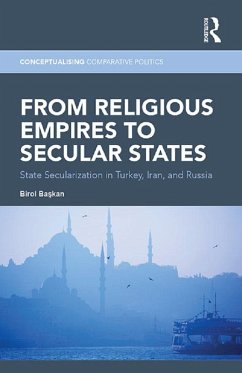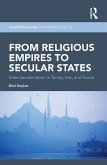This book provides an in-depth comparative historical analysis of state secularization in three major Eurasian countries: Turkey, Iran and Russia. To capture the aforementioned variation in state secularization across three countries that have been hitherto analyzed as separate studies, Birol Baskan adopts three modes of state secularization: accommodationism, separationism and eradicationism. Focusing thematically on the changing relations between the state and religious institutions, Baskan brings together a host of factors, historical, strategic and structural, to account for why Turkey adopted accommodationism, Iran separationism and Russia eradicationism. In doing so, he expertly demonstrates that each secularization strategy was a rational response to the strategic context the reformers found themselves in.
Dieser Download kann aus rechtlichen Gründen nur mit Rechnungsadresse in A, B, BG, CY, CZ, D, DK, EW, E, FIN, F, GR, HR, H, IRL, I, LT, L, LR, M, NL, PL, P, R, S, SLO, SK ausgeliefert werden.









